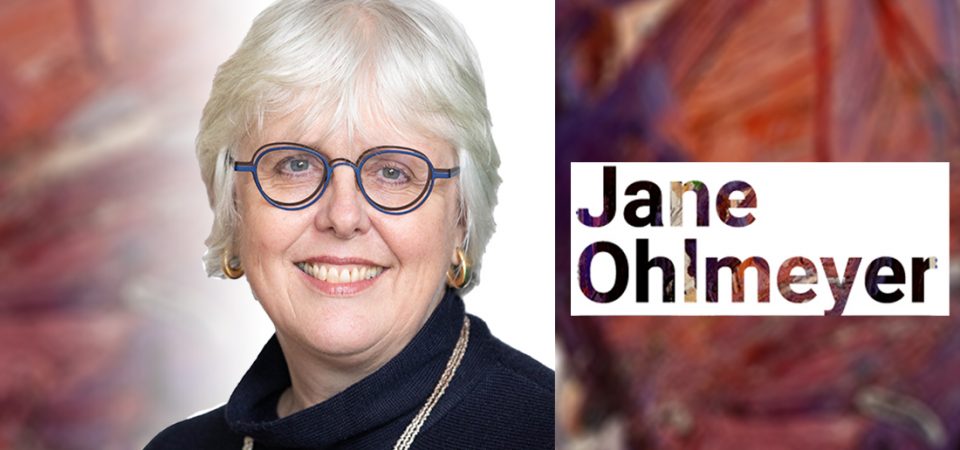


Jane Ohlmeyer, MRIA, FTCD, FRHistS, is Erasmus Smith’s Professor of Modern History (1762) at Trinity College Dublin. She was the founding Head of the School of Histories and Humanities and Trinity’s first Vice-President for Global Relations (2011-14). She was a driving force behind the 1641 Depositions Project and the development of the Trinity Long Room Hub Arts and Humanities Research Institute which she directed (2015-20). Between 2015 and 2012 she chaired the Irish Research Council. She is the PI for ‘Shape-ID’, ‘Shaping Interdisciplinary Practices in Europe’ and a MSCA Co-fund called ‘Human+’, both funded by European Commission’s Horizon 2020 programme. She is the author or editor of numerous articles and 11 books. She is currently working on a book on ‘Ireland, Empire and the Early Modern World’ which she gave as the Ford Lectures in Oxford (2021).
In this lecture I will use Making History, a play by Brian Friel first performed in Derry in 1988, to explore some of the key themes associated with Ireland and Empire. A play about reconciliation, Making History is set at the end of the sixteenth century on the eve of the Nine Years War, which began in 1594 and ended in 1603 with the completion of the English conquest of Ireland. I’ll explore the competing contexts that the play unearths: that of colonial Ireland in which the play was set; that of the Northern Ireland ‘Troubles’ (1968-1998) in which the play was performed; and that of today, as we reflect on what colonialism and imperialism means in 2022.
Wednesday, 16 March 2022, 15:30 – 17:30
Venue: Scheryn Arena, Zeitz MOCAA
Please RSVP to centreforhumanitiesresearch@uwc.ac.za
The lecture will also be broadcast via Zoom. Please click here to register.
This lecture is hosted by Communicating the Humanities, an initiative supported through the Andrew W. Mellon Foundation.